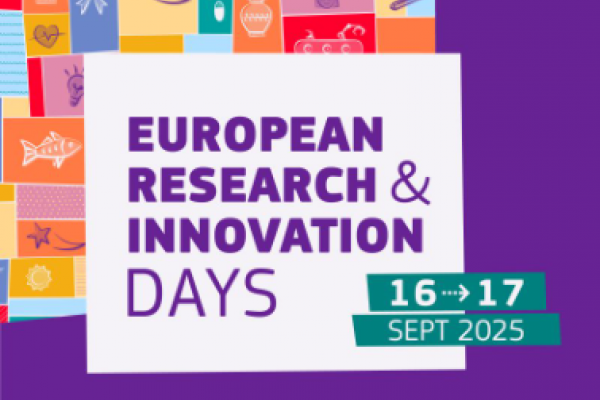Driving European Innovation in Oncology: NuCapCure’s Collaborative Approach
How cross-disciplinary research and partnerships like GalChimia are shaping the future of brain cancer treatment.
On 16–17 September 2025, the European Commission will host its flagship policy event, the European Research and Innovation Days. This event brings together policymakers, researchers, industry leaders, and the wider innovation community to discuss Europe’s top research priorities and how investments in science and technology are driving competitiveness, societal impact and sustainable growth.
NuCapCure, funded by the European Innovation Council (EIC), exemplifies how European research is pushing the boundaries of innovation. The project is developing two groundbreaking therapies for Glioblastoma multiforme (GBM), the world’s most common and deadliest brain tumour, aiming to go beyond the current non-curative treatments. By combining proton and neutron therapies with novel chemical strategies, NuCapCure uses the tumour cell’s own biosynthesis to selectively destroy cancer cells from within while protecting healthy brain tissue, offering the potential for curative, low side-effect treatment.
Collaboration is at the heart of this innovation. GalChimia, a European leader in organic synthesis, is driving the chemical synthesis and validation of NuCapCure compounds. Working closely with NuCapCure partner organisations Charles University and Oslo University Hospital, GalChimia’s team is designing and producing novel compounds capable of ‘hijacking’ intracellular processes within cancer cells. Their expertise in the synthesis of new chemical entities (NCEs), process chemistry for scale-up and extensive knowledge of pharmaceutical technology transfer due to their work and experience with pharma, biotech and agrochemical industries, ensures that scientific discoveries in NuCapCure can translate efficiently into potential therapies.
In discussing their partnership in the project, Jacobo Cruces, CSO at GalChimia, stated “NuCapCure fits perfectly to our mission as a company of improving society through organic chemistry research by leveraging our chemical expertise to tackle one of the most urgent challenges in oncology.” He continued, “Partnerships like NuCapCure help us collaborate with global leaders, both public and private, and remain at the forefront of chemical research, ultimately contributing to generating valuable knowledge and technological advances in the EU.” Jacobo summed up the importance of this event for the EU, “European Research and Innovation Days are a perfect occasion to celebrate how research and industry collaborations are accelerating breakthroughs and turning bold ideas into tangible progress for patients.” Through projects like NuCapCure, Europe demonstrates how cross-disciplinary collaboration between research institutions and industry partners can drive innovation and strengthen the continent’s global leadership in biomedical science improving lives and outcomes.

